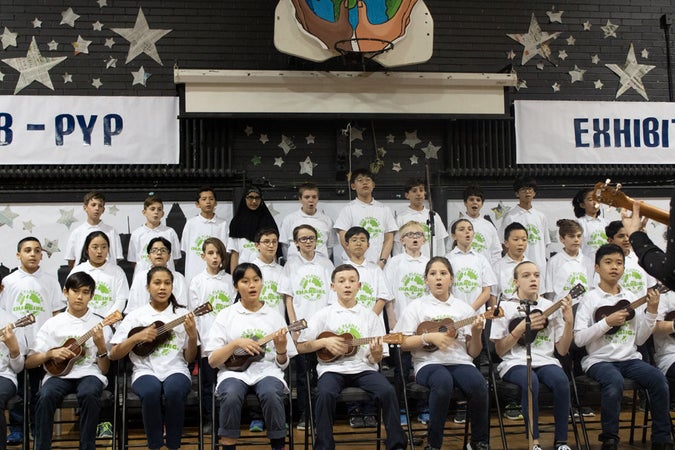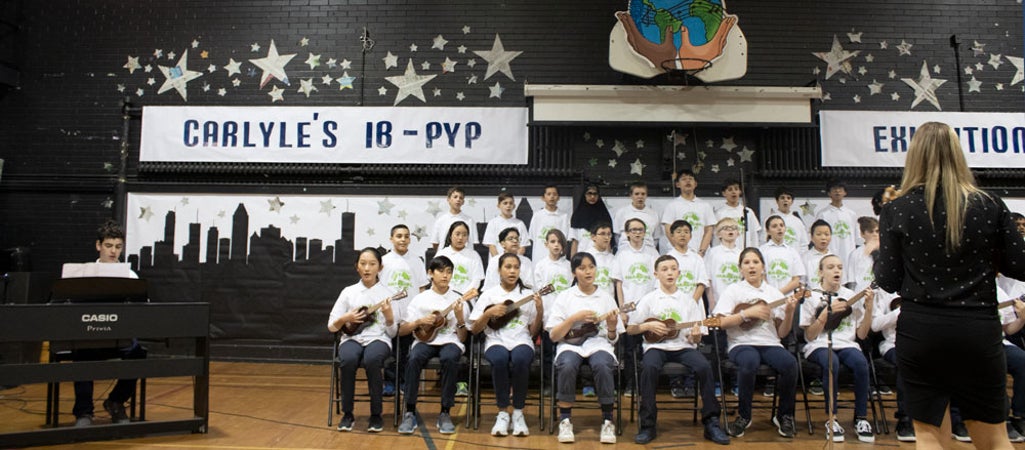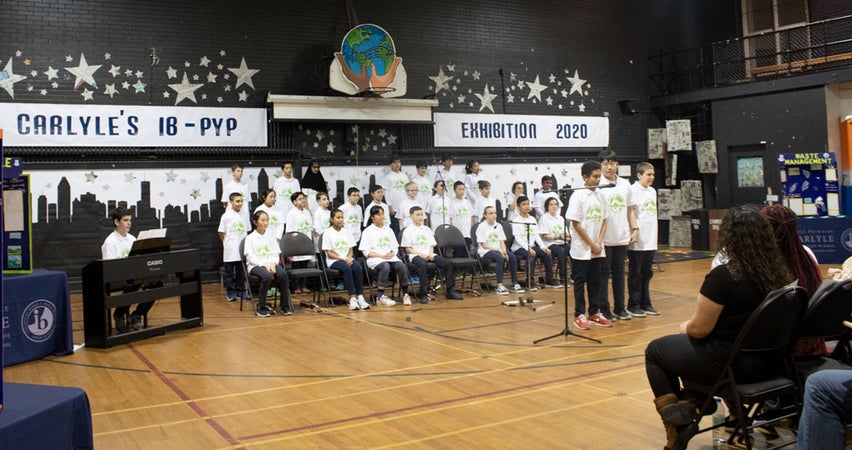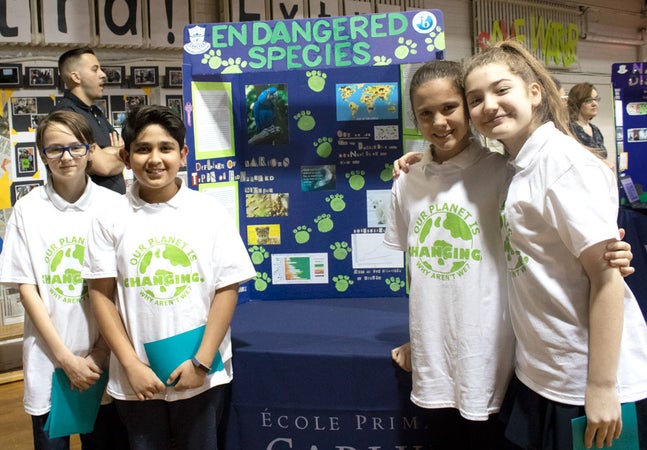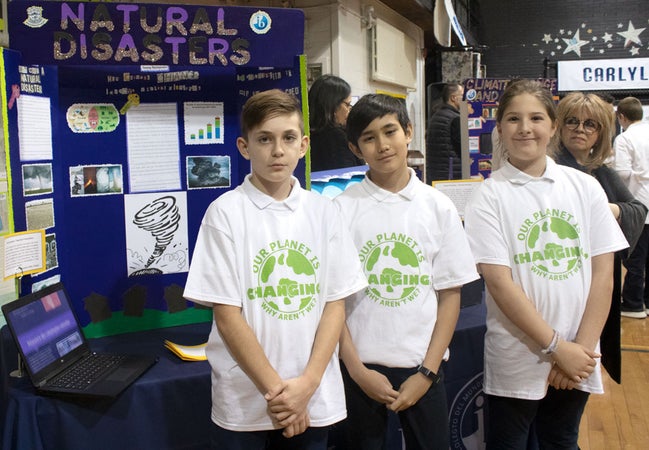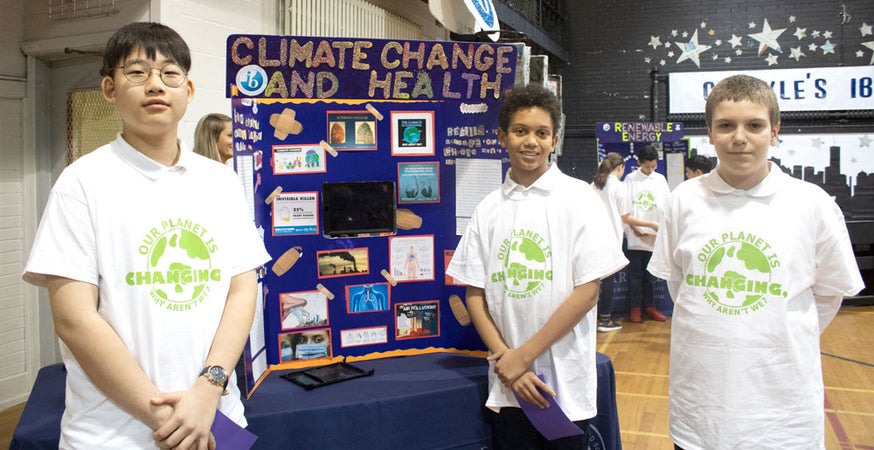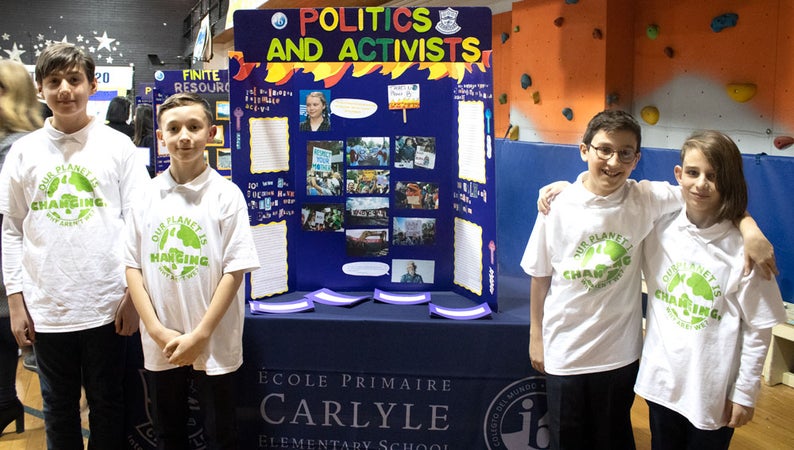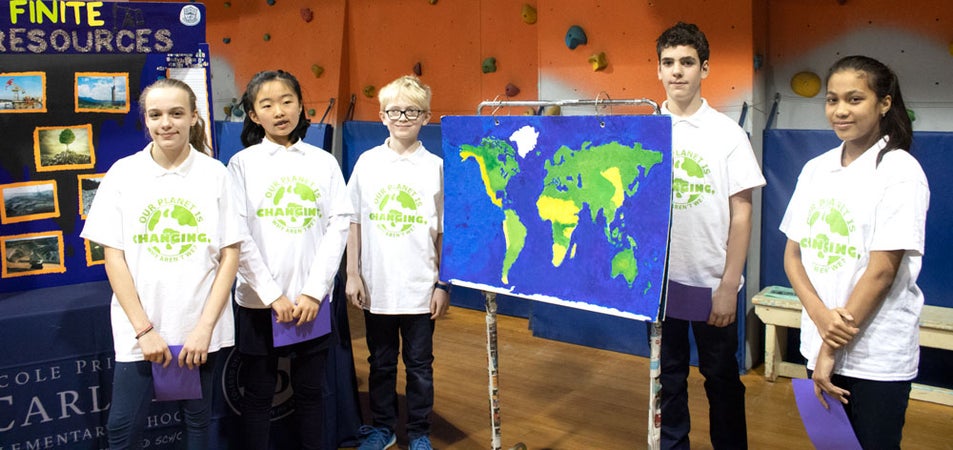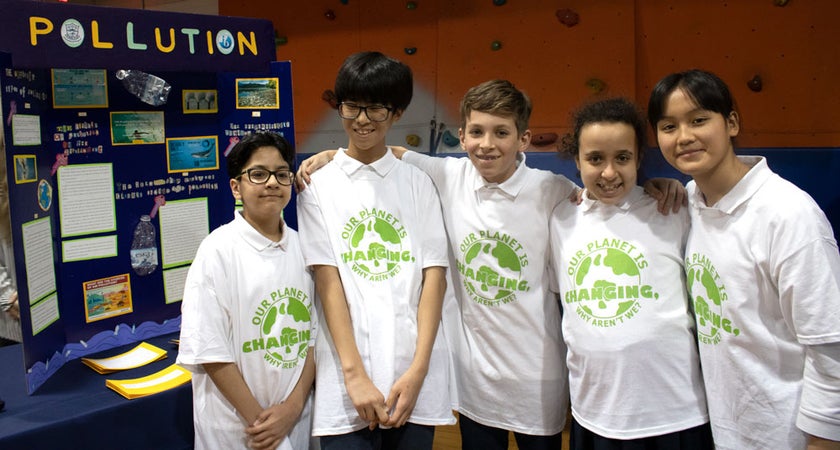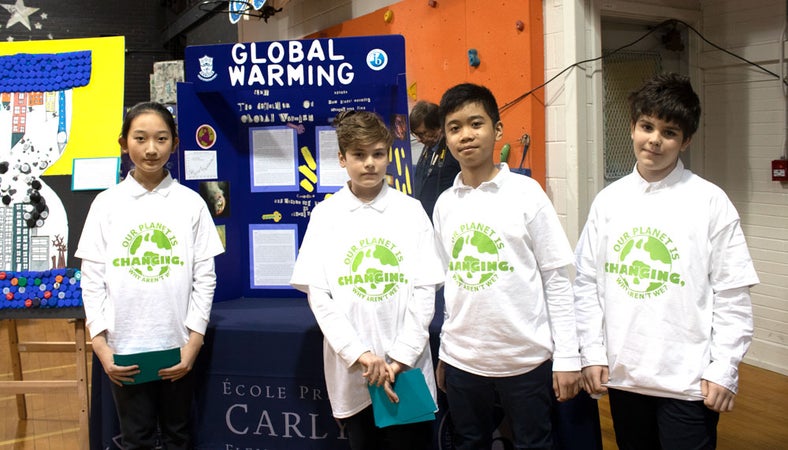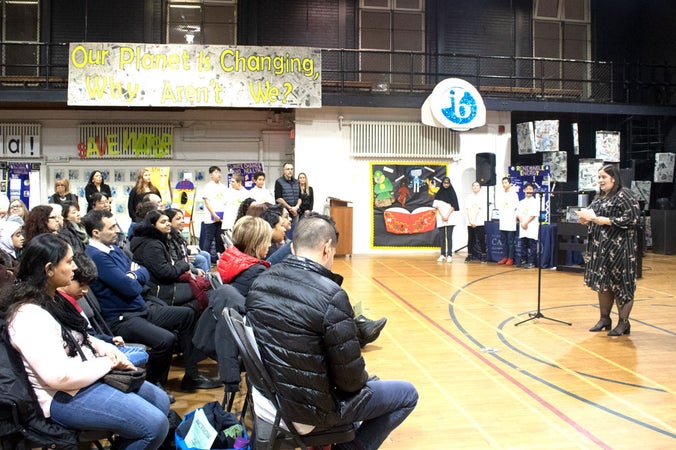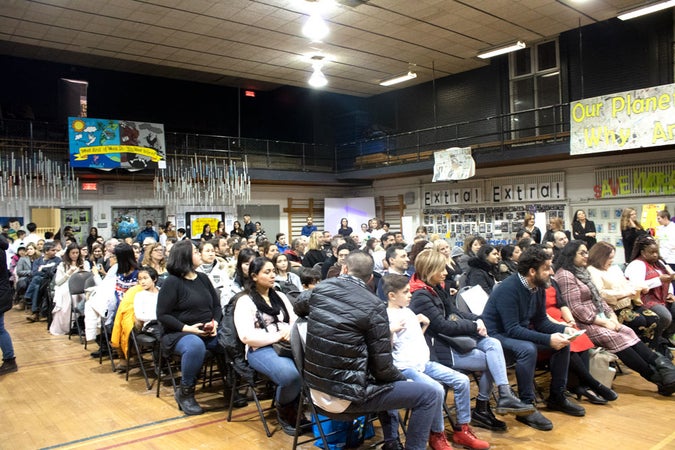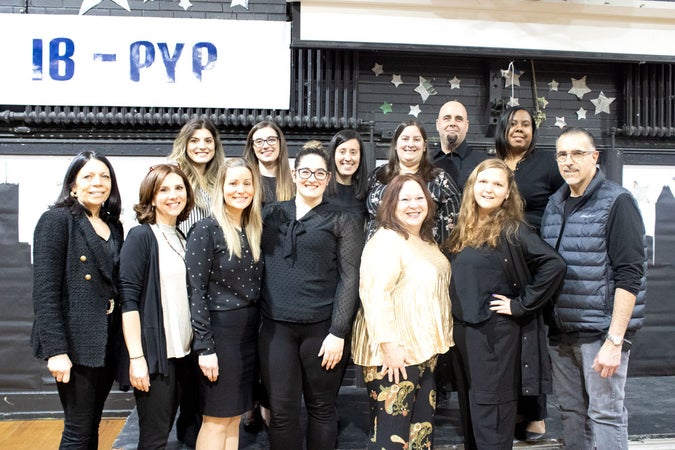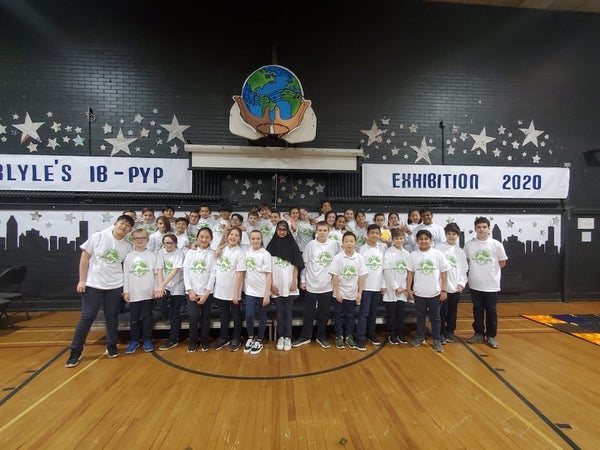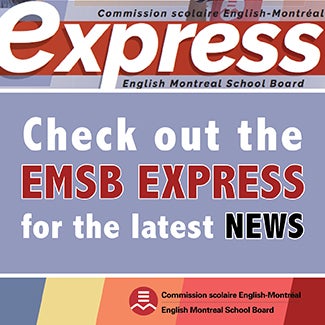Carlyle School presents impressive IB-PYP Exhibition on Climate Change
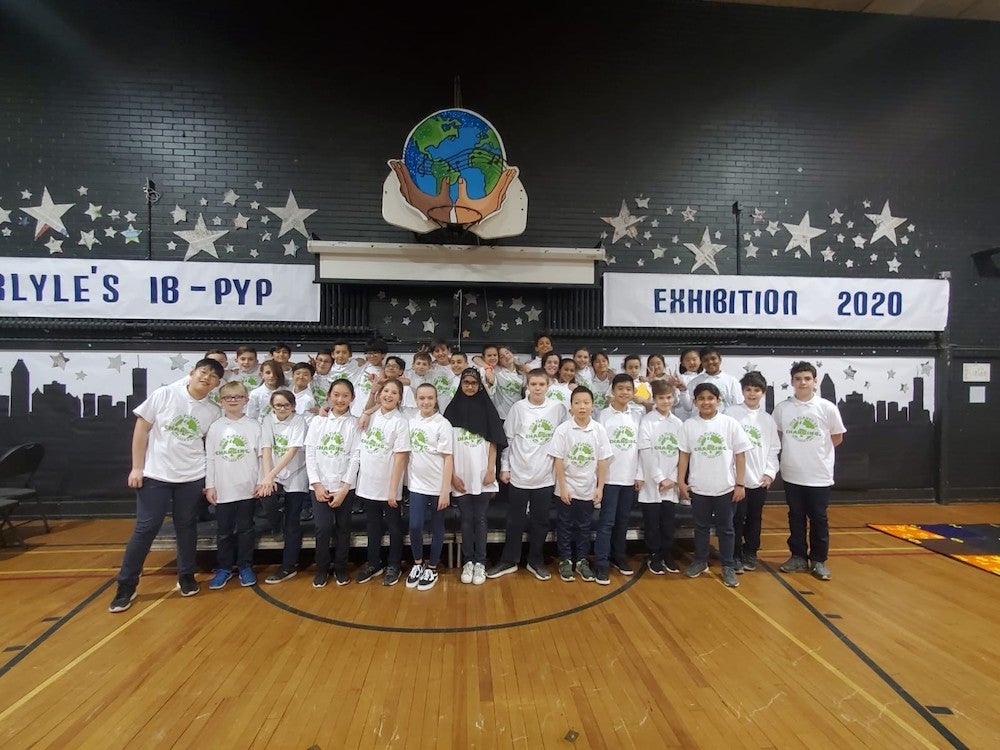
The Grade 6 students at Carlyle Elementary School in TMR, presented their IB Primary Years Programme (PYP) Exhibition entitled “Our Planet is Changing, Why Aren’t We?” on Thursday February 6, 2020.
The event began with a remarkable climate change video showcasing worldwide changes and Carlyle’s contribution to the subject matter. Students were inspired by Greta Thunberg’s visit to Montreal in September 2019. They wrote a song about climate change with help of their music teacher, Mme Christine Rahal-Crawford. Principal Dina Vourdousis said: “This has been a student-driven project from start to finish, and I am so proud of them.”
IB Coordinator, Christina Mallozzi, elaborated on the project. “This year’s Exhibition stems from the Transdisciplinary Theme: Sharing the Planet,” she said. Students began by creating their own central idea; “Climate change impacts our planet and all living things.” Next, they uncovered nine sub-topics related to their theme: global warming, waste management, pollution, endangered species, politics & activism, finite resources, renewable energy, natural disasters and climate change and health. Throughout the process, they used books and online sources and creatively compiled information to put together this year’s project. Students also collectively created 3D Mapping projects, stop-motion videos and PowerPoint presentations.
The Grade 6 students embraced the arts and created representations of their research using various art mediums. This year, students were inspired by their Exhibition topic and wanted to reduce their carbon footprint. Therefore, all of the art work that was on display in the gymnasium was made using recyclable materials. Most of the recyclable materials were donated by Carlyle parents and Concordia University’s Center for Creative Reuse, which diverts materials from Concordia’s waste-stream and offers them to the general community for free. School officials are proud to say that they did not have to buy any new materials in order to create the project.
Some other interesting facts include:
- The Endangered Species group researched various types of endangered animals threatened by climate change. They also looked at our responsibility to protect wildlife. They created a 3D mapping project which illustrates a turtle that mistakes a plastic bag as a jellyfish and consumes it as food.
- The Waste Management team discovered the ways waste is managed, as well as the vital role Canada plays in disposing it. They created a life-size interactive board game that gave guests the opportunity to test their knowledge about waste management.
- The Global Warming group had the opportunity to research the Greenhouse effect, caused by increased levels of carbon dioxide, its repercussions, as well as its history. They used bottle caps to create an hourglass timer to represent the time we have left to save our planet.
- The Pollution team explored the different types of pollution and its harmful and toxic effects on the environment. They learned about our responsibility to reduce our carbon footprint. They used materials from recycling bins to produce a turtle in the form of junk art to show that one person’s trash can be another person’s treasure.
- The Finite Resources group explored the reasons behind the depletion of our natural resources. They researched possible solutions and alternatives to replace these limited resources. They created two world maps; one portraying our world today and one predicting what our Earth will look like if we do not take any action.
- The Natural Disasters team researched how climate change can potentially correlate to increasing amount of natural disasters that are occurring. They also looked at how people can prepare themselves in the aftermath of these disasters. They built a 3D diorama of a tsunami to raise awareness about the destruction of natural disasters and the impact they have on the environment.
- The Politics & Activists group studied the policies implemented in order to help the national goal of an 80 percent reduction in emissions by the year 2050. They explored various climate activists that inspired them throughout this Exhibition journey. They also designed a 3D mapping project that displayed pictures of various activists who have impacted our world.
- The Renewable Energy team researched the evolution of various forms of renewable energy and the importance of continuing to find new and effective ways to produce clean energy. They developed 4 superheroes to represent four different types of renewable energy; water, fire, air and Earth and created a comic strip.
- The Climate Change and Health group investigated the link between climate change and the effect it can have on our health. They looked at the increasing rate of certain diseases and its correlation to the rise in our planet’s temperature. They created two posters outlining the effects of two diseases on our health.
For this year’s STEAM project, students created environment-friendly structures using the LEED certification program. LEED stands for Leadership in Energy and Environmental Design. It is a program that certifies a building or infrastructure as eco-friendly. The greener and more environmentally-friendly the building, the higher the rating. Students designed their own building on TinkerCad, referred to the LEED point system and used the 3D printer in order to produce a resource efficient, healthy and resilient model. Finally, the Grade 6 students also worked on a whole collaborative art piece. They were tasked to design a globe that represented both the present and future Earth. The students brainstormed what they believed the Earth would look like in the future if we do not change our ways. The students were then divided into groups, each representing one aspect of the globe (land, water, cities and animals). Once divided, the students worked on each component of the globe separately, which was laid out together collectively through papier-mâché.
